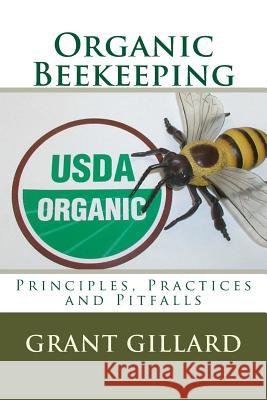Organic Beekeeping: Principles, Practices and Pitfalls » książka
Organic Beekeeping: Principles, Practices and Pitfalls
ISBN-13: 9781507669617 / Angielski / Miękka / 2015 / 146 str.
Chemicals used to be the answer to all our problems; today they seem to be the cause. Once upon a time, we planted our gardens in dirt; today we pay for them with plastic. Jolted awake, society has discovered new answers in an old solution: Less chemical; more organic. Beekeepers, likewise, are looking for healthier options, something more than a chemical response that seems to bring its own complications. The interest in organic beekeeping has taken root. But organic beekeeping is more complex than you would believe. Coming out of an era when defining organics could mean whatever you decided it meant, the USDA formed The National Organic Program (NOP) to bring all organic participants and producers to the same table and get them all on the page. The NOP sought to end the duplicity, by bringing consistency and integrity with a set of rules and regulations of what, "organic," is, and what it is not. But this also meant the NOP restricted the use of the word, "organic," until a producer could verify compliance with some very strict regulations. A beekeeper cannot simply declare their apiary is, "organic," nor can they describe their management as, "Natural beekeeping that keeps bees organically," In Organic Beekeeping, Grant Gillard peels back the implied simplicity and expounds the accountability for beekeepers who want to keep honey bees organically and produce organic honey. Our chemical-laden, industrial production agriculture has made it virtually impossible to, legitimately, keep honey bees under organic management. Our concession, as beekeepers, is find ways to keep honey bees, as organic as possible.
Zawartość książki może nie spełniać oczekiwań – reklamacje nie obejmują treści, która mogła nie być redakcyjnie ani merytorycznie opracowana.











